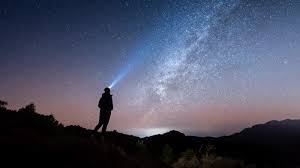Exploring the Cosmos: The Best Books to Understand Astronomy.
Introduction:
Astronomy, the study of celestial objects and phenomena, has captivated human curiosity for centuries. From ancient civilizations to the modern era, humans have looked up at the night sky in awe, seeking answers about the universe and our place within it. If you're fascinated by the wonders of the cosmos and eager to deepen your understanding of astronomy, books can be an excellent resource. In this article, we will explore some of the best books that offer a comprehensive and accessible introduction to the fascinating field of astronomy.
1. "Cosmos" by Carl Sagan:
Considered a classic in popular science literature, Carl Sagan's "Cosmos" takes readers on an extraordinary journey through space and time. Sagan, a renowned astronomer and science communicator, seamlessly combines scientific knowledge with his poetic writing style, creating a captivating narrative that explores the origins of the universe, the wonders of the solar system, and the prospects of extraterrestrial life. "Cosmos" not only imparts knowledge but also inspires readers to develop a deep sense of wonder about the universe.2. "A Brief History of Time" by Stephen Hawking:
Stephen Hawking's "A Brief History of Time" is a masterpiece that delves into the complexities of the cosmos. Written for a non-specialist audience, the book presents profound scientific concepts in a way that is accessible to everyone. Hawking addresses fundamental questions about the universe, such as the Big Bang, black holes, and the nature of time. By interweaving scientific theories with engaging anecdotes, he invites readers on a captivating intellectual adventure.
3. "The Universe in a Nutshell" by Stephen Hawking:
For those intrigued by the mysteries of the universe, "The Universe in a Nutshell" is another brilliant work by Stephen Hawking. Building upon the concepts discussed in "A Brief History of Time," this book explores cutting-edge theories in cosmology, quantum mechanics, and the nature of reality. With the aid of visually stunning illustrations, Hawking demystifies complex ideas and presents a thought-provoking account of the universe's grand design.
4. "The Fabric of the Cosmos" by Brian Greene:
Brian Greene, a prominent physicist and science communicator, takes readers on a mind-bending journey in "The Fabric of the Cosmos." Exploring the intersection of physics and astronomy, Greene elucidates concepts such as space, time, and the nature of reality. He examines mind-boggling topics like quantum mechanics and string theory, offering readers a captivating glimpse into the frontiers of scientific exploration.
5. "Death by Black Hole: And Other Cosmic Quandaries" by Neil deGrasse Tyson:
Renowned astrophysicist Neil deGrasse Tyson's "Death by Black Hole" presents a collection of engaging and informative essays that cover a wide range of astronomical topics. Through Tyson's witty and accessible style, readers will learn about the birth and death of stars, the mysteries of black holes, and the possibility of life beyond Earth. With his infectious enthusiasm, Tyson inspires readers to delve deeper into the wonders of the cosmos.
Conclusion:
Exploring the vastness of the universe through the lens of astronomy can be an awe-inspiring and intellectually rewarding experience. The books mentioned above serve as excellent guides, offering a comprehensive understanding of the cosmos while catering to both scientific enthusiasts and curious readers alike. Whether you're captivated by the birth of stars, fascinated by the mysteries of black holes, or intrigued by the origins of the universe, these books will fuel your passion for astronomy and leave you with a deeper appreciation for our cosmic surroundings. Embark on a journey through the pages, and let your imagination soar among the stars.





0 Comments:
Post a Comment
Subscribe to Post Comments [Atom]
<< Home